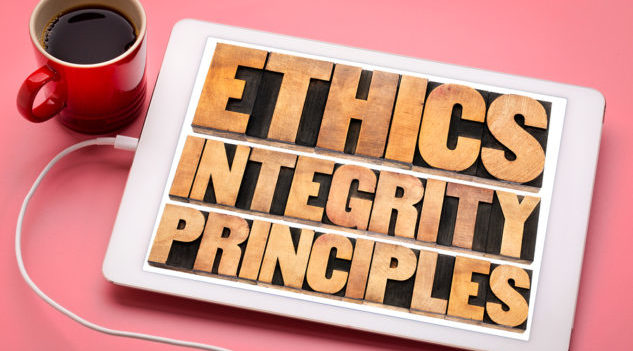There is a growing interest in ethically-made products with a study by Accenture finding that nearly two-thirds of consumers are attracted by strong ethics and transparency. But how do you know if the product or company you’re interested in really is ethical?
What are ethics?
Ethics are expressions of our personal values and beliefs and therefore it’s hard to set one standard that suits everyone. I might justify buying bananas in plastic packaging because it increases their shelf life and reduces food waste, and you might tell me I’m “bananas” because that extra plastic packaging is unnecessary!
Some things are easier to agree upon than others. Clothing brands that source products from sweatshops in Asia are on the nose with most consumers. However, there are many alcohol, tobacco and gaming industry products that are legal but require our government (and our taxpayer dollars) to fund their social costs. Does this mean that everyone should abstain from drinking, smoking and gambling?
These are not easy questions to answer, reinforcing the point that it’s hard to draw a line in the sand and find an ethical formula that is one-size-fits-all.
Is there such thing as an ethically perfect company?
Adventure clothing and accessory brand, Patagonia, sets out to “save our home planet” and commits to working in the best interests of workers, the community and the environment along with its shareholders. Whilst there will always be tension between purpose and profit, Patagonia sets high public standards which gives us assurance around their commitment and follow-through.
That’s not to say this is always true. The Body Shop, founded by Anita Roddick and sold to Loreal in 2006, built its brand on a pledge of being cruelty-free. It came under fire when it entered the Chinese market and could no longer make such guarantees.
Even a company that’s trying really hard to be ethically pure might be using pens filled with non-sustainably sourced ink. Few business owners or customers have the capacity to delve into that level of detail. And when we buy responsibly sourced goods made overseas are we factoring in the environmental impact of the extra transport miles?
We are making trade-offs every time we transact.
What can you do?
Just the other day, my local supermarket was promoting their support for environmental champions and then offering me plastic toys when I went through the checkout. The toys are annoying; however, I see them as being a smaller scale issue compared to reducing food waste and decreasing energy usage.
Interestingly, a study of purchasing intentions and ethics found that people rarely stick to their values for purchases made in private but are more inclined to when the purchase is made in public with other people present. Plus, there’s the question of affordability as students, young families and pensioners may not be able to pay the price premium that comes with being ethical.
If you are unhappy with a brand, let them know. I’d encourage you send your feedback through their formal channels because their sales representatives, marketing and brand managers know that if one person makes the effort to complain there are many more with the same gripe. They’d be wise to listen.
To put your ethical purchasing intentions into practice, I’d encourage you to set your own priorities, learn how to better spot marketing stunts and take any trade-offs into account when making your decisions.
Phil Preston, Collaboration Expert










